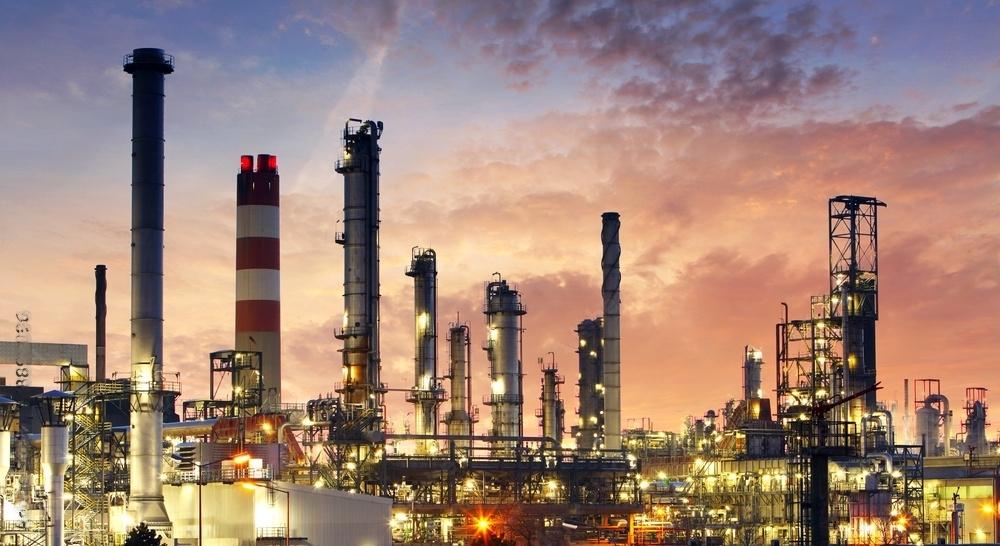Industrial lubricants are specialized types of lubricants that are used in various industrial applications to reduce friction, heat, and wear between moving parts. They are designed to withstand high temperatures, heavy loads, and harsh operating conditions that are common in industrial machinery and equipment.

Here are some common types of industrial lubricants:
- Mineral Oil-Based Lubricants: These industrial lubricants are derived from petroleum and are widely used in general industrial applications. They offer good lubrication properties and are available in various viscosities to suit different equipment requirements.
- Synthetic Lubricants: Synthetic industrial lubricants are chemically engineered lubricants that offer superior performance compared to mineral oil-based lubricants. They are designed to have a high resistance to extreme temperatures, oxidation, and degradation. Synthetic lubricants are often used in applications where there are high operating temperatures or demanding conditions.
- Greases: Greases are semisolid lubricants that consist of a base oil thickened with soap or other solid additives. They provide excellent lubrication for components that require adhesion and resistance to water washout. Greases are commonly used in bearings, gears, and other industrial applications.
- Gear Lubricants: Gear lubricants are specifically formulated to provide proper lubrication and protection to gears and gearboxes. They have high viscosity and contain additives that enhance their load-carrying capacity and protect against wear, pitting, and corrosion.
- Hydraulic Fluids: Hydraulic fluids are used in hydraulic systems to transmit power and lubricate moving parts. They are formulated to provide high-pressure stability, resistance to oxidation and foaming, and proper lubrication of pumps, valves, and other hydraulic components.
- Compressor Oils: Compressor oils are used in air compressors to provide lubrication and cooling to the compressor components. They have excellent thermal stability and resistance to oxidation to ensure optimal performance and protection in high-temperature conditions.
- Metalworking Fluids: Metalworking fluids include cutting fluids, grinding fluids, and other fluids used in metalworking processes. They provide lubrication, cooling, and chip removal during machining operations, extending tool life and improving surface finish.
- High-Temperature Lubricants: High-temperature lubricants are designed to withstand extreme temperatures without breaking down or losing their lubricating properties. They are used in applications such as kilns, furnaces, and high-temperature bearings.
- Food-Grade Lubricants: Food-grade lubricants are specifically formulated to meet safety standards and regulations for use in food processing and packaging equipment. They are non-toxic, odorless, and resistant to degradation when exposed to food products.
It’s important to note that the selection of the appropriate industrial lubricant depends on the specific application, equipment requirements, and operating conditions. Consulting with lubricant manufacturers or industry experts can help determine the best lubricant for a particular industrial application.
- Metalworking Fluids: Metalworking fluids include cutting oils, coolants, and lubricants used in machining operations, such as drilling, milling, and grinding. They help to cool the tool and workpiece, improve surface finish, and extend tool life.
When selecting an industrial lubricant, factors such as operating temperature, load, speed, environmental conditions, and compatibility with equipment materials should be considered. It is crucial to follow the manufacturer’s recommendations and specifications for proper lubricant selection and maintenance practices to ensure optimal performance and equipment longevity.
A unique feature of industrial lubricants
Another unique feature of industrial lubricants is the use of nanotechnology. By using nanoparticles in lubricants, it allows for the lubricant to fill in the micro-pores and imperfections on the machinery surface which leads to better lubrication and protection. This results in lower friction and wear, as well as improved energy efficiency.

There are also specialized lubricants for specific industries such as food-grade lubricants, which are safe to use in food processing facilities and do not leave any harmful residue. In addition, there are also lubricants specially formulated for the mining industry to withstand the harsh conditions and extreme temperatures that mining equipment is exposed to.
Overall, industrial lubricants are a vital component in maintaining the smooth operation of machinery and equipment across various industries. With the advancements in technology and research, there are now more specialized and sustainable options available for industrial lubrication.


